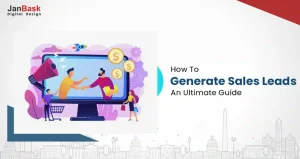
Digital Marketing offers so many variances of features to benefit your business. On the digital platform, it is important that you come up on the first page of the search results when people look upon you either through paid search or organic search. It is a proven fact that 41% of the top 3 paid ads get clicked. This means that you need to try as much as you can to be on the top 3 of the paid ads or in the least case make it to the first page of search engine results.
1. Let’s try to understand what Paid Search is
Pay Search, Pay for Search, PPC Marketing – these are the keywords that have similar meanings. So, basically, when you ‘pay for search’, as in for each click to your website then that is termed as Paid Search. Search engines such as Google and Bing will show up your ads on the SERP – Search Engine Results Pages when you go for ‘pay search’. Pay for Search is a part of the humongous Digital Marketing that will cost you only when your ad is clicked on.
2. The need for Paid Search
Let’s say you are a start-up and need to make your venture get attention, you will need time to get the limelight on your venture on the digital platform. But, again, if your intention is to steal the limelight quickly, then you might as well consider opting ‘pay for search’. So, the essence of going for a paid search is to make Google list you on top of the search results. Getting your spot on top of the search results is important because, that is how you will get noticed, increase traffic to your website and thereby do well in your business/venture.
3. Paid Search vs Organic Listings
As the name implies, organic search happens without any external intervention like the PPC module. This takes time to build. And you need to do a lot of background work to appear on organic listings. But, in the case of pay for a search, you can appear on the search results on time provided you give all the information like the demographics, age group, etc, required correctly. In the long run, organic search is healthy, however, if there are any special campaigns running or you are a newbie relatively, then, you make use of ‘pay search’
4. Working methodology of Pay Search
The basic method of working is through Ad Auction. Business entities will bid on specific ‘keywords’ for which their ads will show up. The process of choosing the ads to be displayed is determined on the following criteria:
1.Relevancy of the Ads
2.The validity of the Ads
3.Landing Page of the website that the Ad directs
When a search term is entered on the search bar, the ‘keywords’, Google/Bing will search in the database for the relevant ads and based upon the demographic and geographic information, it will check for the validity of the Ads and the quality and page ranking of the landing page of the website and will display it accordingly. This is the base of paid search marketing.
5. Contribution of Ad Rank and Ad Quality to Paid Search
In order for Google to pick your paid ad among the whole lot is determined by the Ad Rank. The basic formula to calculate the Ad Rank is
Ad Rank = Bid x Quality Score.
Here, the Bid is the amount that the business pays per click of its Ad. And coming to Quality Score, it is evaluated based on the following criteria:
- How relevant is the Ad to the end-user
- How useful is the Ad to the end-user
- Landing Page Experience
- Expected Click-Through Rate(CTR)
The above points clearly depict that pay for search is more than just paying and getting people to click on it. The above-mentioned criteria need to be paid attention to make the best use of paid search marketing.
6. Paid Search and Click-Through Rate(CTR)
 Click-Through Rate is the ratio of the number of clicks on the paid website links to the actual number of users who view the link/website, e-mail or advertisement. CTR is used to measure the following:
Click-Through Rate is the ratio of the number of clicks on the paid website links to the actual number of users who view the link/website, e-mail or advertisement. CTR is used to measure the following:
1. The success rate of an advertising campaign
2. Effective use of the email campaigns
Since each click is paid and if the Click-Through Rate is good, then it means that the money spent on the paid search marketing paid off after all.
7. Importance of Landing Page Experience in Paid Search
Landing Page is the front page of the website. As it is said, ‘the first impression is the best impression’, it is important that the first impression/sight of the landing page of your website is up to the mark and the following needs to be focussed on:
1. Loading time/speed of the landing page
2. Ease of navigation/browsing on the landing page
3. Quality and relevant content on the landing page
4. Transparency of the landing page.
Paid Search Marketing’s ultimate aim is to bring the users to the corresponding website. And therefore the above factors that determine the landing page experience need to be taken extreme care of. That is how you get to make the best use of paid search marketing.
8. Keywords – The ‘Key’ to Paid Search
‘Keywords’ were termed as Google Ad Words before. Keywords are the most important elements when it comes to paid search marketing. This is due to the fact that it is based on the keywords that Google will bring your ad and display it when you ‘pay for search’. And for this sole reason, you need to do a thorough keywords analysis. Make sure you list out all the possible keywords relating to your product/service/business. And then curate them and zero down for which keywords your ads need to be pulled out and shown and then bid for those keywords.
9. Return on Investment from PPC Marketing
ROI – Return on Investment is a very basic thing in any kind of business. Especially in paid search marketing, there is no guarantee that your investment would fetch you the desired goals in the end. Therefore you need to know how to make the best use of each penny that you put into paid search. You could carry out a pre-launch analysis and have a rough idea of how the paid search engine marketing will turn out. This way you can actually manage your financial budget and make sure you get the return on investment. You could track it by having an eye on the following factors:
1. Online Sales
2. Inquiry phone calls
3. Live chat progress
4.Online form fillings
By tracking the above metrics, you can fairly have an idea of how well your paid search marketing is working out for you.
10. Pay Search – Goal Settings
When you sort out for a ‘pay search’, you need to be clear of your goal as in the end, your paid search needs to be very clearly defined, only then you can proceed with paid search engine marketing effectively. You need to make sure you have crystal clear answers for the following questions:
- What is your motto of paid search?
- Are you looking forward to building your brand awareness?
- Your primary target – Increased inquiry? Or Increased orders?
- Are you concerned about your rankings?
- Are you serious about your leads?
The above-mentioned questions will help you to get a fair understanding of how to finetune your paid search marketing goals.
11. Paid search engine marketing and Leads
Paid search engine marketing’s goals include leads. When you are not in a position to make a sale, you might as well consider taking essential steps to target your leads. Basically, when paid search engine marketing is on, you can expect lead generation as one of the many end results. But, in order to get that to happen, you could try out the following steps:
1. You can have ‘request demo’ call to action button
2. You could announce a free trial
3. You can also add get a consultation call to action button
All the above steps will essentially help in generating leads and making sure you can work out from there to make a sale positively.
12. Paid Search Marketing – Narrowing down your target audience
Paid Search can fetch you a database of information. In the current scenario, data is wealth and therefore you need to learn how to connect the dots. Once you get the information about your paid search engine marketing, curate the results based on the inquiries. Like:
1. The demographic information
2. The geographical information
3. The keywords for which your ad was displayed.
This information will help you narrow down your paid search criteria. By focusing on the above points, you can narrow down your target audience group and work out a strategy to focus on them.
13. Essential tracking metrics of Pay for Search
There are many metrics and terminologies you need to be familiar with when it comes to paid search. It is important to be clear of the following metrics.
1. Impression
2. Click
3. Conversion
4. Spend
13.1. Impression
When a keyword is typed into the search bar, and your ad pops up and is viewable, then the number of people who have simply viewed your ad is considered an impression. Having a maximum number of impressions in a ‘pay search’ is a good sign as that will lead you to the next step.
13.2. Click
So, once your ad is viewed and the audience feels like that is relevant to what they are searching for, then they get to click on it. And this is called ‘clicks’. In ‘pay search’, click is half the success, but still, there is a little more distance that needs to be covered to make a sale and fetch you the essential ROI.
13.3. Conversion
Conversion in a ‘pay search’ is essentially a very positive aspect since the end-user might have availed your service and that is your ultimate intention in the end. So, more conversions, more business.
13.4. Spend
Spend is the overall amount that you have spent on Pay for Search.
14. Importance of Ad Networks in PPC Marketing
 Advertising Network or Ad Network is an entity/business/company that serves as a connecting platform between the advertisers and the websites/website holders who host advertisements on their website/platform. When you are looking into PPC marketing, you need to look out for the best Ad Networks. This is due to the fact that each Ad Network has its own protocols. You need to analyze your business needs and choose Ad Networks accordingly. The following are some of the popular Ad Networks:
Advertising Network or Ad Network is an entity/business/company that serves as a connecting platform between the advertisers and the websites/website holders who host advertisements on their website/platform. When you are looking into PPC marketing, you need to look out for the best Ad Networks. This is due to the fact that each Ad Network has its own protocols. You need to analyze your business needs and choose Ad Networks accordingly. The following are some of the popular Ad Networks:
1. Google Ads
2. Yahoo Gemini
3. Bing Ads
4. AdRoll
5. Facebook
6. Twitter
7. Pinterest
8. LinkedIn
Each Ad Network mentioned above has its own rules and regulations. Choose the best fit according to the goal of your PPC marketing strategy.
15. PPC Marketing Optimization
Paid Search Marketing is not something where you give the details and pay and get done with it. You need to keep tracking each and every step. That is how you will be able to make the best use of paid search engine marketing. By looking closely into the following parameters, you can effectively optimize your PPC Marketing strategy:
1. Checking Bids and adjusting it according to the requirements
Checking the search term report closely. The above two factors need to be checked from time to time and thus you need to make changes accordingly. By checking the bids and adjusting it according to the volume of traffic you get for certain keywords, you can actually utilize your money spent effectively. Also, by closely looking into the search term report you will be able to figure out which keywords you need to bid more for. By following this procedure you will optimize your ‘pay search’.
16. Does ’Pay for Search’ contribute to SEO ranking?
The answer to the above question is Yes! The thing about organic search and ‘pay search’ kind of bugs people. The bottom line here is that you end up spending on both. The way it acts up alone changes otherwise when you look at it from an expenditure point of view, you need to spend on both.
In paid search engine marketing, you pay for your ad to show up directly when the corresponding keywords are typed into the search bar. But, in the case of organic search, you work out many protocols that will enhance your organic SEO search results. So, at the end of the day, you will benefit from both strategies, but it depends on your goal. To get noticed quickly, you need to go for ‘pay search’, else, work on methods that will help you rank on top organically. One sure thing is, it will take some time for you to rank on top of the search results organically.
17. Conclusion
Paid Search is an effective way to promote your business online. The above strategies and steps must have given you a fair idea of what paid search engine marketing is and how it works. It is essential that you first jot down the details of your goals. That will help you a big deal in choosing the right strategy for Pay for Search. The more you work on paper, the more effectively you will be able to strategize the steps for ‘pay search’. There are more minute details that you need to look into, but the above blog should give you a fair eagle-eye view of the digital marketing domain and more specifically PPC marketing.
If you are a budding business, you might give a serious thought about opting for ‘pay search’. And on the other hand, if you are an established business, you might be working on the organic search protocols. Either way, you will be spending, so, plan out a strategy and work out accordingly to make the best use of the features that digital marketing has to offer, especially the ‘pay search’.




Leave a Reply